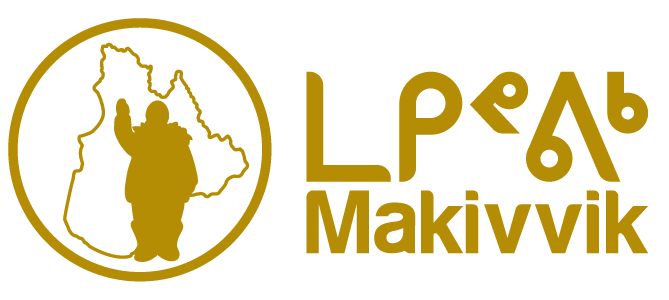This is the first in a series of articles in which Taqralik Magazine will highlight a woman working in what is considered a ‘non-traditional’ field.
Lydia Tayara has helped build a house. There aren’t many women who can say that, but this Salluit resident is one of them. She has been doing construction work for six years, after making the decision to pursue what she felt would be a good job.
Lydia Etok is a Liaison for Inuit Employees with Makivvik’s Construction Division and says Lydia Tayara is one of only a handful of women working in the field, and they would like to see more.
“Most may see carpentry as a ‘man’s job,’ but women can work just as good as men,” she says, and the Construction Division encourages more female interest. While Makivvik Construction don’t necessarily have a skills training program in writing, it has a type of on-the-job training, for which they get some funding from KRG for skills development and to increase the employability of Inuit in the construction field. The Inuit women who work for Makivvik Construction all took the carpentry and painter/plasterer course offered in Inukjuak.
Etok explains that some Inuit construction workers have taken a carpentry course, but many have not. To increase Inuit employability in Nunavik, Makivvik Construction does not refuse any Inuk who wants to work, if they have taken a construction work site safety course, which is given by KRG. Some of those who have taken carpentry courses at Nunavimmi Pigiursavik in Inukjuak tend to become role models or guides to those who haven’t taken a carpentry course…like Lydia Tayara. The division encourages and welcomes southern construction crews who are willing to help and transfer their knowledge and skills, where then an Inuk worker will be paired with a southern carpenter. They work alongside each other first and foremost as co-workers, Etok explains, but also at the same time as “teacher/student.” There is a process by which training, or work time is equated to experience gained and after a certain number of hours the individual is eligible to write an exam to become a certified journeyman. Although Makivvik Construction has yet to see their workers get their journeyman certification, it has been working with KRG and KI to try and facilitate the process and its accessibility. The work is on-going.
Lydia Tayara says she spent six months as the only female in a group of Inuit engaged in the “Maison école” program, which Lydia Etok explains is where the construction division allocates one social housing unit to be built by an entire team of Inuit workers. This team along with a worker/teacher build a house from the ground up to finish.
Tayara says the best part of the job for her is doing the roofing, while the most challenging is pouring cement. She really likes working in construction, says her friends and family are very proud of her for doing this, and she has recommended the training to other women. “This has really helped in the confidence of our workers,” Etok says. “Lydia is a prime example of that and she’s really good in what she does.”





